第251章 LETTER CLXIII(1)
LONDON,March 16,O.S.1752
MY DEAR FRIEND:How do you go on with the most useful and most necessary of all studies,the study of the world?Do you find that you gain knowledge?And does your daily experience at once extend and demonstrate your improvement?You will possibly ask me how you can judge of that yourself.I will tell you a sure way of knowing.Examine yourself,and see whether your notions of the world are changed,by experience,from what they were two years ago in theory;for that alone is one favorable symptom of improvement.At that age (I remember it in myself)every notion that one forms is erroneous;one hath seen few models,and those none of the best,to form one's self upon.One thinks that everything is to be carried by spirit and vigor;that art is meanness,and that versatility and complaisance are the refuge of pusilanimity and weakness.
This most mistaken opinion gives an indelicacy,a 'brusquerie',and a roughness to the manners.Fools,who can never be undeceived,retain them as long as they live:reflection,with a little experience,makes men of sense shake them off soon.When they come to be a little better acquainted with themselves,and with their own species,they discover that plain right reason is,nine times in ten,the fettered and shackled attendant of the triumph of the heart and the passions;and,consequently,they address themselves nine times in ten to the conqueror,not to the conquered:and conquerors,you know,must be applied to in the gentlest,the most engaging,and the most insinuating manner.Have you found out that every woman is infallibly to be gained by every sort of flattery,and every man by one sort or other?Have you discovered what variety of little things affect the heart,and how surely they collectively gain it?If you have,you have made some progress.I would try a man's knowledge of the world,as I would a schoolboy's knowledge of Horace:not by making him construe 'Maecenas atavis edite regibus',which he could do in the first form;but by examining him as to the delicacy and 'curiosa felicitas'of that poet.A man requires very little knowledge and experience of the world,to understand glaring,high-colored,and decided characters;they are but few,and they strike at first:but to distinguish the almost imperceptible shades,and the nice gradations of virtue and vice,sense and folly,strength and weakness (of which characters are commonly composed),demands some experience,great observation,and minute attention.In the same cases,most people do the same things,but with this material difference,upon which the success commonly turns:A man who hath studied the world knows when to time,and where to place them;he hath analyzed the characters he applies to,and adapted his address and his arguments to them:but a man,of what is called plain good sense,who hath only reasoned by himself,and not acted with mankind,mistimes,misplaces,runs precipitately and bluntly at the mark,and falls upon his nose in the way.In the common manners of social life,every man of common sense hath the rudiments,the A B C of civility;he means not to offend,and even wishes to please:and,if he hath any real merit,will be received and tolerated in good company.